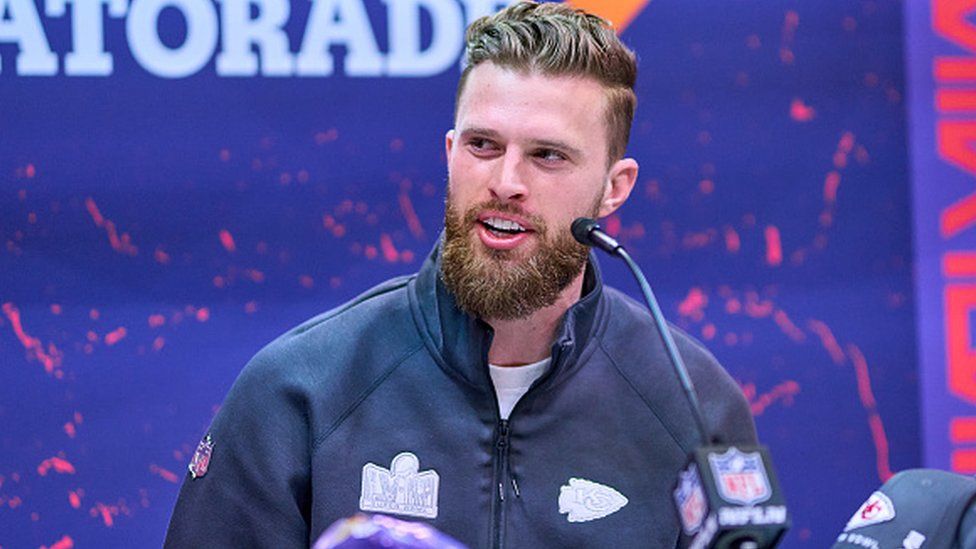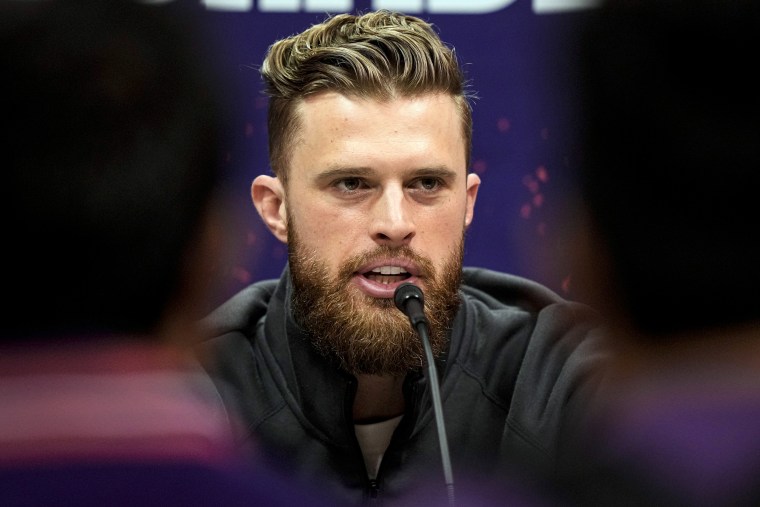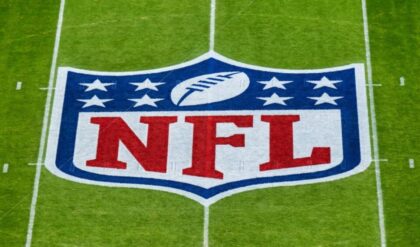
In a striking declaration that has sent ripples through the NFL community, Pittsburgh Steelers head coach Mike Tomlin has pledged to resign from his position if Harrison Butker, the controversial Kansas City Chiefs kicker, is dismissed from his team. This bold statement by
Coach Tomlin underscores the complexities of navigating personal convictions within the professional sports arena and highlights the growing tensions around freedom of speech and its repercussions in the NFL.
Harrison Butker recently made headlines not for his performance on the field, but for his outspoken views expressed during a public speaking engagement at Benedictine College. His comments, which touched on several sensitive social and political issues, have polarized
opinions and sparked a debate on whether athletes should use their platforms for such expressions. Butker’s remarks included strong positions on abortion, euthanasia, IVF, surrogacy, and the LGBTQ community, as well as traditional views on women’s roles, which have led to widespread speculation about potential disciplinary actions, including possible dismissal.
Coach Mike Tomlin, known for his leadership and often vocal support of his players’ rights to express their views, has taken a firm stand in solidarity with Butker. “I support Harrison’s stance,” Tomlin stated in a press conference, “and if his exercising of free speech leads to his
firing, then I will no longer be able to align myself with this organization.” Tomlin’s stance is not just about supporting a fellow member of the NFL but is also a profound statement on the rights of individuals within the league to express their personal beliefs.
Tomlin’s potential departure would not only be a significant loss for the Pittsburgh Steelers but would also have broader implications for the NFL. It raises questions about the league’s commitment to supporting its players and staff in the face of public and media scrutiny. The
situation puts the NFL at a crossroads, challenging it to balance the often conflicting interests of maintaining team cohesion, upholding freedom of expression, and managing the public and commercial impacts of controversial opinions.
The response to Tomlin’s declaration has been varied. Within the Steelers organization, many players and staff have reportedly expressed support for Tomlin’s principled stand, appreciating his consistent approach to leadership and his defense of personal freedoms. Among fans
and the public, however, opinions are divided. Some commend Tomlin for his unwavering support of free speech, while others criticize him for creating unnecessary drama within the league.

This incident reflects broader societal debates over the limits of free speech, particularly in high-profile workplaces. In today’s highly charged political climate, the actions and words of public figures like NFL players and coaches are scrutinized more than ever. Tomlin’s stand brings
to the forefront the ongoing discussion about the role of athletes and sports figures in societal and political conversations.
If Tomlin were to resign over this issue, it could potentially trigger a shift in how sports organizations handle similar situations in the future. His departure might encourage other coaches and players to take stronger stances on social issues, potentially leading to a more outspoken
culture within professional sports. Alternatively, it could prompt organizations to create more explicit policies regarding public statements by their members to avoid similar controversies.
As the situation unfolds, all eyes will be on the NFL’s next moves and how this might affect Butker’s career and Tomlin’s tenure with the Steelers. The outcomes of this controversy will likely influence not only the careers of the individuals directly involved but also the policies and practices of sports organizations dealing with similar issues in the future.
Coach Mike Tomlin’s readiness to leave a prestigious position in defense of a colleague’s right to free speech is a testament to his character and his commitment to the principles he deems essential, both on and off the field. Whether one agrees with his stance or not, his bold
declaration is a pivotal moment in sports and may redefine the relationship between professional athletes’ rights to personal expression and their roles within their sports and society at large.
Tomlin’s support for Butker also underscores the often complex role that coaches play as both leaders and mediators. Coaches are responsible not only for their team’s performance but also for maintaining morale and supporting their players in personal matters. Tomlin’s
handling of this controversy highlights the delicate balance that coaches must maintain between supporting their players and adhering to the broader expectations of the league and its fanbase.
In conclusion, Coach Mike Tomlin’s threat to resign if Harrison Butker is dismissed over his controversial comments is more than just a news item; it is a significant moment that underscores the importance of free speech and personal convictions in professional sports. Tomlin’s
stance is a bold reminder of the human element in sports, where personal beliefs and professional responsibilities often intersect in challenging ways. This episode will likely resonate within the NFL and beyond, prompting discussions about the role of free speech, the responsibilities of public figures, and the support systems within sports organizations.






